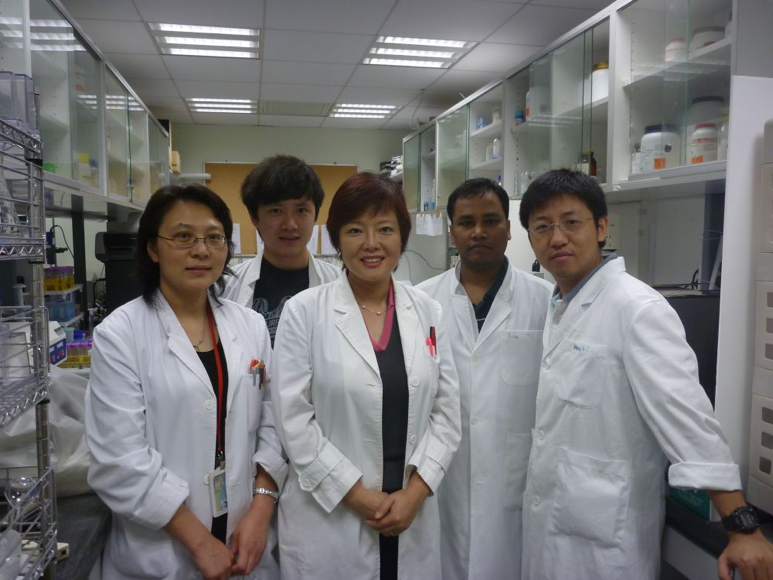
Collaborative autophagy research by Prof. Li Min of School of Chinese Medicine published in Nature Communications
June 16, 2014
A joint research project entitled “NRBF2 regulates autophagy and prevents liver injury by modulating Atg14L-linked phosphatidylinositol-3 kinase III activity” by Prof. Li Min at School of Chinese Medicine (SCM), and Professor Yue Zhenyu of the Department of Neurology and Neuroscience, Icahn School of Medicine at Mount Sinai, USA, elaborates on the role of NRBF2 in autophagy regulation and liver injury prevention, and provides a novel drug target for autophagy modulation and liver injury prevention. The research article was published Nature Communications in http://www.nature.com/ncomms/2014/140522/ncomms4920/full/ncomms4920.html. Autophagy is a lysosome degradation pathway for material and energy recycling, and plays vital roles in the growth, development and homeostasis of cells. Dysregulation of autophagy has been linked to a number of diseases, including cancers and neurodegenerative diseases.
According to the findings of the research team, NRBF2 is a Beclin1-interaction protein and is a novel component of Beclin1-Vps34 complex which contributes to the regulation of cell autophagy. To explore the physiological function of NRBF2, the research team created NRBF2 knockout mice. They have discovered that though knockout mice could survive, they suffered from liver injury and displayed accumulation of autophagy substrate. The study further revealed that NRBF2 played an important role in modulating autophagy and Atg14L-linked Vps34 kinase activity, and demonstrated that NRBF2 worked as an adaptor to promote the assembly of Beclin1-Atg14L complex and Vps34-Vps15 complex for regulation of autophagy, Vps34 kinase activity as well as liver injury. Interestingly, the NRBF2 KO cells displayed increased sensitivity to endoplasmic reticulum stress, indicating the function of NRBF2 in preventing ER stress-associated cell death.
Prof. Li Min said that the study uncovers the physiological function of NRBF2 and provides a novel therapeutic target for autophagy-associated liver damage and ER stress-associated disorders including neurodegenerative diseases and cancers, which could lead to the discovery of innovative therapy and drugs for those diseases.

Prof. Li Min (centre), Dr Lu Jiahong (right) and the research team

